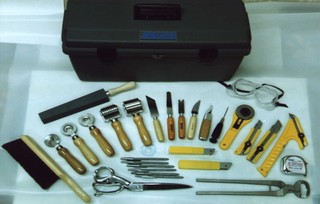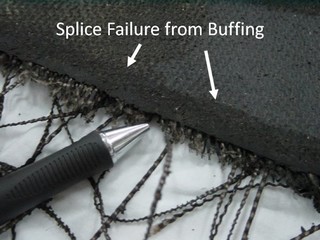CMA: Knowledge-based Training for Conveyor Belt Supervisors
 Correct splice kit
Correct splice kit
Correct splice kit
Source: CMA
The Conveyor Manufacturers Association of South Africa (CMA) has once again come out strongly in favour of education and training in the materials handling industry in Octobre 2017. Long known for their professional training courses and workshops which are geared to provide practical exposure to various aspects of conveyor belt operations, the CMA has adopted a proactive stance towards up-skilling workers at all levels of the industry.
Henk Brink, who holds the CMA portfolio in education and training, says: “There is one level of the workforce that tends to be overlooked and thus undertrained when it comes to keeping up with new developments in, for example, belt splicing. These are the supervisors. They are somehow expected to pick up knowledge on the run.” Jay Pillay, Chairman, agrees: “Not good enough. Conveyor belts are extremely costly and without adequate safety precautions, can be the cause of costly downtime, injury and even death.”
Filling the gap, the CMA conducts a three-day introductory course in splicing of textile-reinforced belting for supervisors and overseers. This gives an overview of belt splicing that emphasises best practise to achieve successful, long-lasting splices. “We combine lectures with practical observation in the workshop,” explains Brink, “which includes inspection techniques such as cutting open the splice. This results in better safety, reduced downtime and saves millions of rands by preventing damage to the belt and conveyor structure,” he explains. Although actual splicing is not taught at the workshop, since this requires in-depth study, it does explain to the supervising engineer what to look out for during the preparation and construction of a splice.
 Splice failure from buffing
Splice failure from buffing
Source: CMA
The CMA presents a number of other training and diploma courses focusing on conveyor belts. “All workshops and courses are designed and presented by senior members who are prepared to share their knowledge and experience in the interests of creating a better industry,' says Jay Pillay. “The more people that acquire skills, the stronger the industry becomes, and this, in turn, affects the economy in general.”
Other training opportunities that the CMA offers include an intensive six-day diploma course in the design and operation of belt conveyors; a three-day conveyor certificate course which covers the basics of conveyor operation, types of conveyors, components, belt maintenance, splicing and safety; a three-day intensive course in chute design held in conjunction with CMMS and Wits University; and a one-day beltsman certificate course held on-site at the request of companies in the industry.



